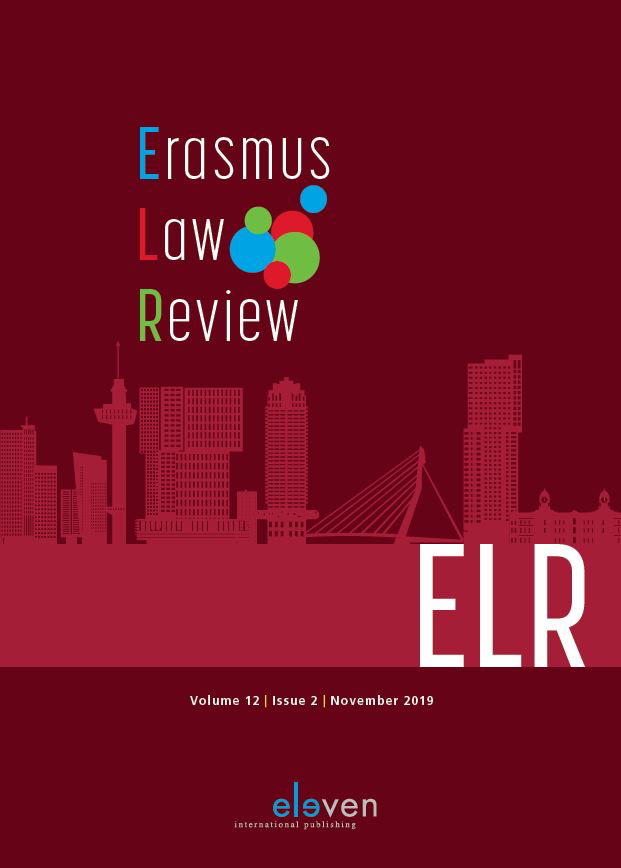|
This article investigates the relationship between trust, security and the judiciary in Romania. Following the democratic transition and European Union (EU) membership, the Romanian legal system faced two crucial tasks: dealing with the past through means of transitional justice, such as lustration (vetting), and dealing with the future through anti-corruption measures that were to strengthen the rule of law and enable economic development. In dealing with both tasks, the Romanian judiciary was essential in making far-reaching decisions whose consequences went far beyond the legal system. In this article, the author examines some of the implications of the decisions in these two areas for the levels of trust within the judiciary and trust in the judiciary. |


Erasmus Law Review
About this journalSubscribe to the email alerts for this journal here to receive notifications when a new issue is at your disposal.
| Article |
|
| Keywords | trust, security, judiciary, transitional justice, Romania |
| Authors | Nedim Hogic |
| AbstractAuthor's information |
| Article |
|
| Keywords | Court of Justice, reasoned orders, EU law, procedural tools, trust |
| Authors | Lucía López Zurita |
| AbstractAuthor's information |
|
This article explores reasoned orders issued by the Court of Justice (the Court) to reply to preliminary references of the national courts in the procedure for a preliminary ruling of Article 267 TFEU. Reasoned orders allow the Court to reply in a swift manner to preliminary references that raise no doubts. This article looks at the use of reasoned orders as proxies of trust and, thus, contributes to the research on trust in a multilevel judicial system. To this end, it analyses all Article 99 orders issued by the Court of Justice during two full years (2020 and 2021). The article uses this qualitative analysis to reflect on the Court’s trust on its national counterparts, and of the latter in the Court, and provide suggestions on how to use these orders to enhance reciprocal trust. |

 Issue 1 (incomplete)
Issue 1 (incomplete)